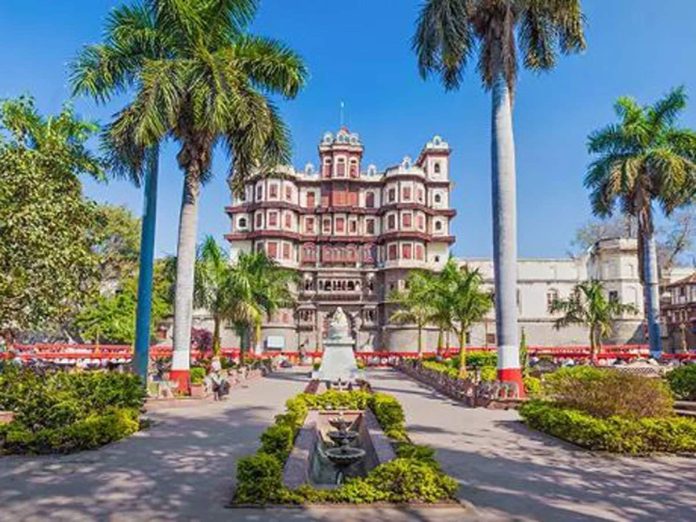Indore in Madhya Pradesh has been ranked the cleanest city for the fourth consecutive year under the Swachh Survekshan 2020, the Centre’s annual survey of cleanliness, hygiene and sanitation in cities and towns across India.
Surat in Gujarat and Navi Mumbai in Maharashtra were ranked second and third, respectively. In the category of population of less than 1 lakh, Maharashtra’s Karad bagged the first position, followed by Saswad and Lonavala.
“Our efforts going forward will be on safe containment, transportation and disposal of faecal sludge and septage from toilets, and also the grey and black water from households and establishments. Along with this, the treatment of all wastewater before discharging into water bodies, and their maximum possible re-use will also be our priority,” Housing and Urban Affairs Minister Hardeep Singh Puri said after announcement of the survey results.
The announcement of this year’s results was delayed due to the Covid-19 pandemic, the ministry of housing and urban affairs said. The survey, which covered 4,242 cities and saw the participation of 1.87 crore citizens, was completed in 28 days.
“When the Swachh Bharat Mission- Urban (SBM-U) was launched in 2014, it was with the objective of making urban India 100 % open defecation free (ODF) along with 100 % scientific solid waste management,” Puri said in a virtual presser.
Chhattisgarh was ranked the cleanest state of India in the ‘under 100 Urban Local Bodies’ category while Jharkhand was adjudged the leanest state of India in the ‘above 100 Urban Local Bodies’ category.
Addressing the winners and citizens at large, the Minister said “More than five years ago, the Hon’ble Prime Minister had seen a dream – the dream of a Swachh Bharat. Today, we feel immensely proud, as well as humbled, to see how every citizen of urban India has come together to make that dream a tangible reality.
“In the last five years, we have seen how this Mission has created a deep impact on people’s health, livelihoods, quality of life and most importantly, in their thoughts and their behaviour”.
The Minister further exhorted everyone to play their part and be a true Swachhata Warrior by inculcating habits of Swachhata such as practising proper segregation of waste at source, saying no to single use plastic and treating sanitation workers with respect and dignity, amongst others.
In 2019, Indore was awarded the cleanest city in the country in the Swachh Survekshan 2019 (SS 2019) awards, while Bhopal was declared the cleanest capital. Ujjain bagged the award for being the cleanest city in the population category of 3 lakh to 10 lakh.
Puri said “A framework was therefore needed to bring about rigour in the progress in monitoring and a spirit of healthy competition among states and cities to improve their performance in key cleanliness parameters. This underlying thought led to the conceptualisation and subsequent implementation of the Swachh Survekshan (SS), a competitive framework to encourage cities to improve the status of urban sanitation while encouraging large-scale citizen participation.”
Indore had retained the top spot in the survey for three consecutive years.
Every year, cities and towns across India are awarded with the title of ‘Swachh Cities’ based on their cleanliness and sanitation drives as a part of the Swachh Bharat Abhiyan that was launched in 2014.
The ministry, which is the nodal agency for the Swachh Bharat Mission, conducted its first survey ‘Swachh Survekshan-2016’ survey to rank 73 cities (Urban Local Bodies), in January 2016, under the ambit of the Swachh Bharat Mission (Urban). In order to expand the coverage of cities, the ministry conducted its second survey ‘Swachh Survekshan-2017’ in January-February 2017, to rank 434 cities.
In ‘Swachh Survekshan 2018’, the scale of survey and intensity of participation increased with 4,203 cities. For the 2019 Swachh Survekshan, the ministry covered 4,237 cities.
“The mainstreaming of informal waste workers, provision of social security schemes and safety gear to all sanitation workers, dignity, recognition and welfare of sanitation workers and their families was accorded due importance,” Puri said. He added that the survey team visited over 58,000 residential and over 20,000 commercial areas covering over 64,000 wards—all in 28 days.
Last month, the ministry launched the sixth edition of the survey, Swachh Survekshan 2021. The indicators for the survey will focus on parameters pertaining to wastewater treatment and reuse along with faecal sludge. The issues of legacy waste management and remediation of landfills have been brought to the fore in the sixth edition of the Survekshan.
The ministry has also added a new category called the ‘Prerak DAUUR Samman’ which has five additional sub-categories—Divya (Platinum), Anupam (Gold), Ujjwal (Silver), Udit (Bronze), Aarohi (Aspiring). Besides the present criteria of evaluating cities on ‘population category’, this new category will categorise cities based on six select indicator-wise performance criteria.


